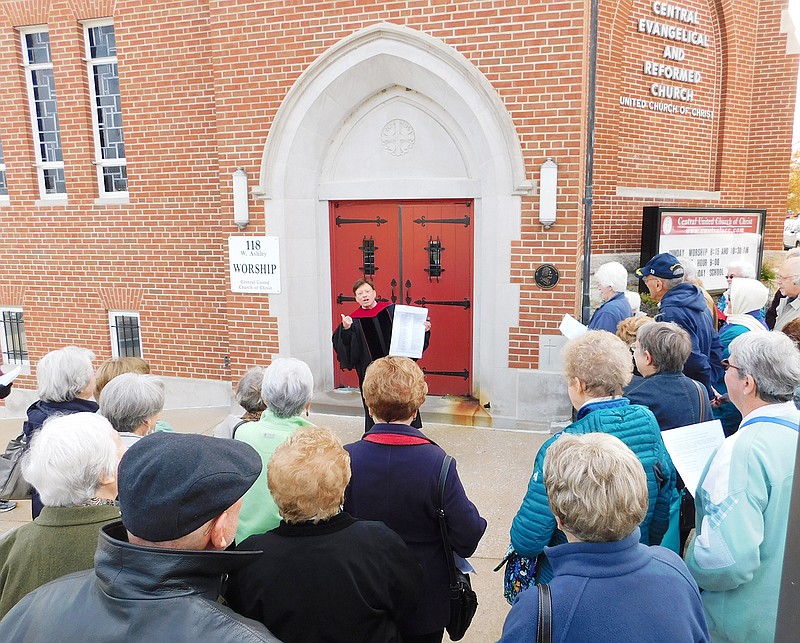For many Lutherans across Jefferson City, Oct. 31 represents the 500th anniversary of the Protestant Reformation initiated by Martin Luther, but it also signifies unison among Christian denominations.
A Tuesday presentation noted the United Church of Christ in Jefferson City is a product of the faith-based reformations that followed Luther's legacy.
As part of a class offered by the Learning in Retirement organization, a group led by former UCC pastor Stephen Buchholz, 90 seniors attended the presentation.
Buchholz and Walter Schroeder served as keynote speakers for Tuesday's presentation.
"Today not only marks the 500th anniversary of the Reformation, but it also marks the 200th anniversary of this church," Schroeder said.
When Luther pinned the 95 theses to the Wittenberg Church in 1517, it was the start of the Reformation period for the Catholic Church, as well as the separate denominations that stemmed from the reform, he explained.
He highlighted key reformers like John Calvin, John Knox and Frederick William III, who contributed to numerous splits among Protestant Christian denominations including Lutherans, Baptist, Presbyterians, Evangelicals, Episcopalians, Methodists and others.
Specifically, Schroeder spoke on the actions taken by Frederick Williams III, who brought Protestants together in a forced union in Northern Germany at the 300th anniversary of the Reformation on Oct. 31, 1817.
Buchholz spoke about theological highlights of Luther, who outlined the five solas - or foundational principles - Lutherans believe.
For example, Sola Gratia, or "grace alone," says one is saved by grace, and salvation cannot be earned. Sola Scriptura means "scripture alone" - the Bible is the highest authority.
Buchholz explained the main reason Luther translated the Bible from Latin to German - the native tongue of the commoners at the time - was so people could be involved and understand the scriptures.
"People need to be involved in the teachings, and the only way they were able to do that is to be able to understand the scriptures," Buchholz said. "This is how preaching became a part of the Lutheran sermons, marking the centrality of the word. This is the Reformation."

